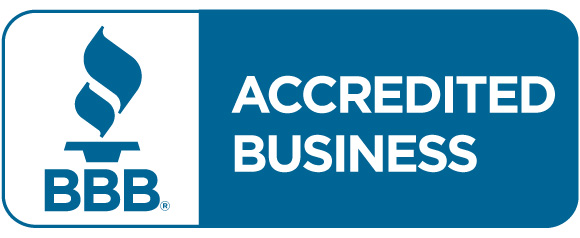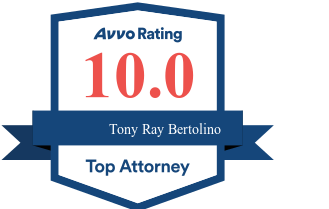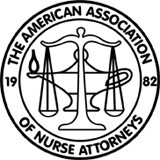
- What is the Texas Behavioral Health Executive Council (BHEC) and what does it do?
- How does BHEC handle complaints it receives about licensed professionals?
- What happens during a BHEC investigation?
- How does BHEC determine what sanctions are appropriate for a violation?
- What types of violations can lead to disciplinary proceedings before BHEC?
- Is it possible to receive a non-disciplinary sanction for a rule violation?
- What is a warning letter?
- What is a conditional letter of agreement?
What is the Texas Behavioral Health Executive Council (BHEC) and what does it do?
The BHEC is the umbrella state agency for the Texas State Board of Examiners of Marriage and Family Therapists, Texas State Board of Examiners of Professional Counselors, Texas State Board of Examiners of Psychologists, and the Texas State Board of Social Worker Examiners. These entities license and monitor various mental health professionals for compliance with the rules and laws that govern their professions. As a result, BHEC receives any misconduct complaints concerning licensed marriage and family therapists, professional counselors, psychologists, and social workers. BHEC also takes disciplinary action against these professionals as needed to enforce rules and laws related to their professions.
How does BHEC handle complaints it receives about licensed professionals?
BHEC receives all complaints lodged against any mental health professionals it regulates. The agency reviews the complaints by initially classifying them as “high priority” or “low priority.” High-priority cases involve allegations of sexual misconduct or a probability of imminent harm to the public. Low-priority cases involve all other allegations of misconduct.
Once BHEC reviews a complaint, it forwards the complaint to the enforcement division of the appropriate licensing agency to determine if it has jurisdiction over the complaint. The agency has jurisdiction if the allegations involve violating the laws or rules that govern the profession, the subject of the complaint is a licensee, and the conduct is exempt from BHEC jurisdiction.
If the enforcement division does not find jurisdiction over the complaint, it dismisses it as non-jurisdictional. However, if the complaint is jurisdictional, it proceeds to the investigatory process.
What happens during a BHEC investigation?
When BHEC opens an investigation, it notifies the complainant in writing with the assigned case number. During the investigation, an investigator reviews the complaint and supporting documentation to determine the existence of any violation. If the investigator identifies a violation, they provide written notice to the licensee of the complaint. This notice contains a copy of the original complaint and a request for a response within 30 days.
Once the investigator receives the licensee’s response, they determine whether they have sufficient evidence to support the allegations in the complaint. If the investigator cannot substantiate any violations, they dismiss the complaint. If the investigator finds sufficient evidence, they forward the complaint to the legal division for further proceedings. The legal division then reviews the result of the investigation for further disciplinary action.
How do I resolve a disciplinary complaint before the BHEC?
After BHEC finishes its investigation, the agency determines whether it has probable cause to proceed with disciplinary proceedings against the licensee. Probable cause exists when the agency finds sufficient evidence that a prudent person would believe the licensee violated a rule or law within BHEC’s jurisdiction.
If BHEC finds no probable cause for the violation to occur as alleged, the complaint goes to the Executive Director for dismissal. Both the complainant and the licensee receive notice of dismissal from BHEC.
On the other hand, if BHEC finds probable cause that a violation occurred, the complaint is referred for an informal settlement conference (ISC). The ISC is held with either BHEC staff or a Disciplinary Review Panel if expert testimony is necessary to establish a standard of care or scope of practice violations. Before the ISC occurs, BHEC often sends the licensee a proposed agreed or settlement offer. At that point, the licensee can reject the proposal and request an ISC or agree to the settlement terms to resolve the complaint.
If the case proceeds to an ISC, the complainant and the licensee can present their version of events. The licensee can also submit evidence that they did not commit the violation as alleged. After the ISC, BHEC staff or the Disciplinary Review Panel, as applicable, will likely recommend the informal disposition of the case, including remand for further investigation, dismissal, or disciplinary action.
However, if resolution by agreement is impossible, the complaint goes to the State Office of Administrative Hearings (SOAH) as a contested case. An administrative law judge (ALJ) will hear evidence from both sides in an administrative hearing. The ALJ issues a proposal for decision (PFD) after the hearing, which is subject to review by BHEC.
What types of violations can lead to disciplinary proceedings before BHEC?
Various violations may lead to disciplinary actions before BHEC. For example, therapists commit a violation if they have sexual contact with a current or former client, therapist, supervisee, supervisor, associate, intern, or student. This violation is so severe that it can lead to license revocation. Other violations might involve the use of alcohol or drugs in a way that adversely affects a therapist’s ability to practice, offering an expert opinion or recommendation concerning custody or access to a child without first conducting a child custody evaluation for the child in question, and aiding abetting the unlicensed practice of therapy.
Professional counselors are subject to similar rules. For instance, a professional counselor may not falsify materials submitted to BHEC, have sexual contact with clients, associates they supervise, or students, or commit therapeutic deception of a client.
How does BHEC determine what sanctions are appropriate for a violation?
If BHEC determines after an investigation that a mental health professional has violated one or more of the rules or laws that govern their profession, it can assess sanctions. The ultimate sanction in a case may be impacted by a history of discipline and/or the severity of the misconduct involved.
For marriage and family therapists, all violations fall within Levels One through Four, with Level One as the most serious and Level Four as the least serious. Level One violations will result in a license revocation, and Level Two violations will result in a license suspension. Level Three violations will result in a probated license suspension with appropriate probationary terms. Level 4 violations will result in a reprimand. Furthermore, any level violation can result in the assessment of an administrative penalty of up to $5,000 per violation per day. An administrative penalty is in addition to the sanction based on the classification of the violation.
Is it possible to receive a non-disciplinary sanction for a rule violation?
BHEC may impose non-disciplinary sanctions concerning some complaints involving only minor violations. This type of sanction takes the form of either a warning letter or a conditional letter of agreement.
What is a warning letter?
A warning letter advises the licensee about their duties under the relevant rule(s) and law(s). BHEC also may express any concerns about the circumstances that led to the disciplinary complaint against the licensee. However, a warning letter does not require the licensee to take affirmative action.
What is a conditional letter of agreement?
A conditional letter of agreement is also a non-disciplinary sanction, but it requires the licensee to follow certain conditions. If the licensee fails to meet those conditions, then they could be subject to further disciplinary action by BHEC. A conditional letter of agreement not only advises the licensee about their duties relative to applicable laws and rules but also sets conditions for the licensee to resolve the violation identified in the complaint.
Since a conditional agreement letter requires some action, a licensee must sign the letter for it to go into effect. Failure to comply with the conditions within the specified timeframe will result in a new disciplinary complaint against the licensee.
We Can Advocate on Your Behalf in Disciplinary Proceedings Before BHEC
The social worker license defense lawyers of Bertolino LLP are here to guide you throughout the disciplinary complaint process. No matter the allegations you may be facing, we can work to protect your interests and work to minimize the negative effects of a complaint on your license and career. Our goal is to help you resolve the allegations against you and maintain your professional license. Call us today at (512) 980-3751 to reach the offices of Bertolino LLP or contact us online.
Call or text (512) 476-5757 or complete a Case Evaluation form















